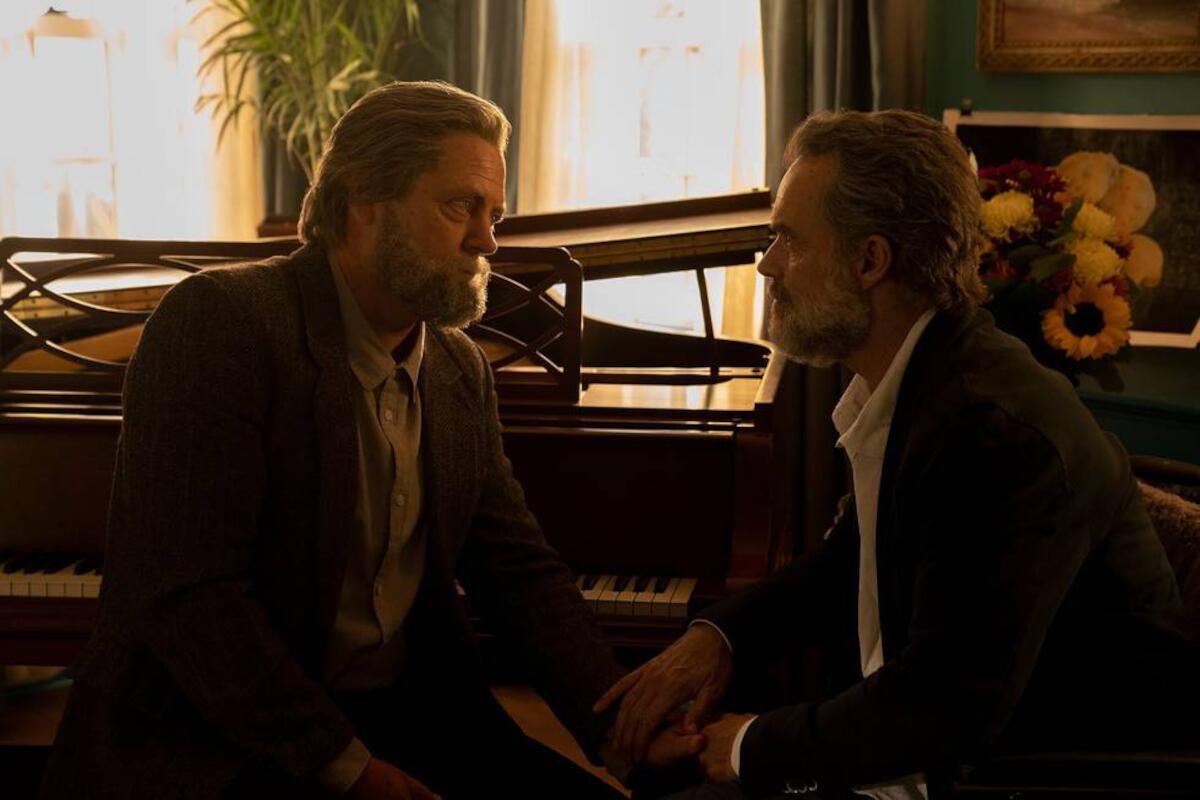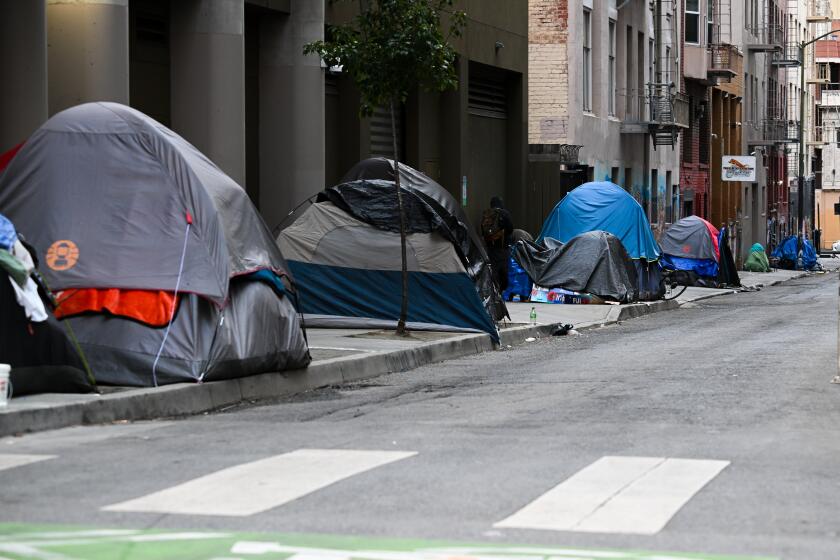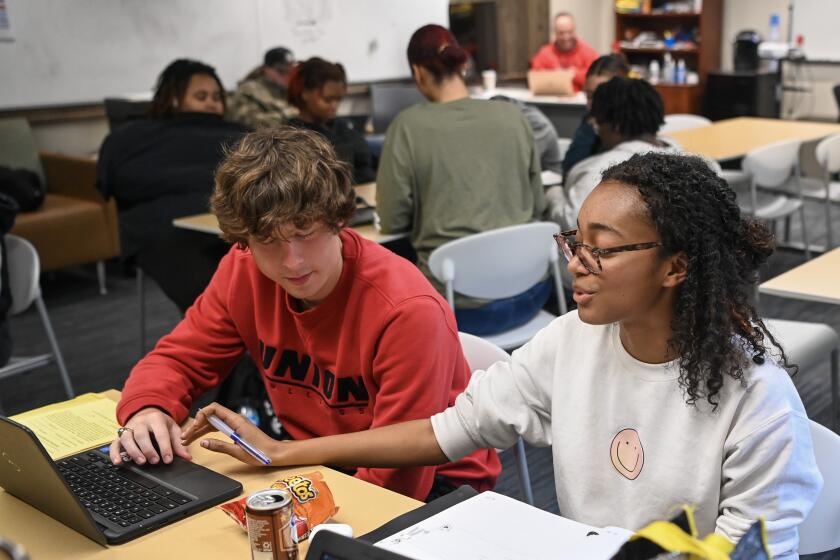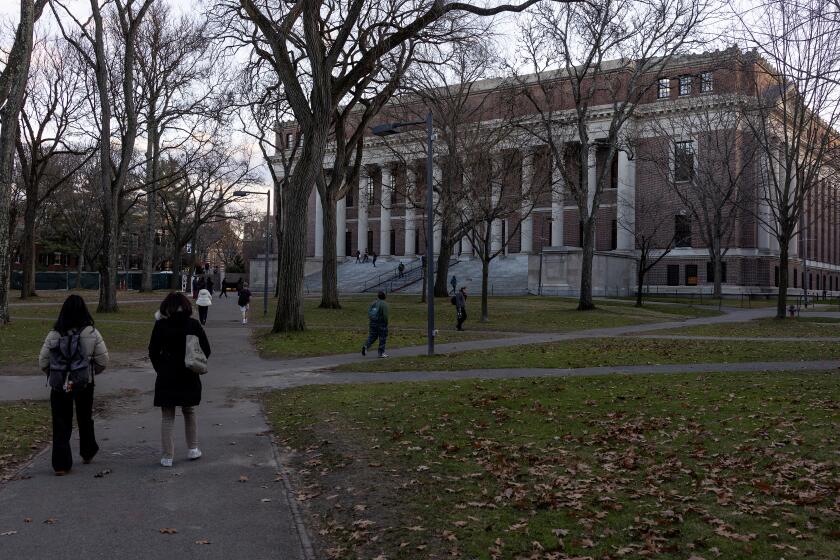Column: In 2023, ‘The Last of Us’ told the story that we needed to see

- Share via
To understand why Episode 3 of HBO’s “The Last of Us” was the best episode of television in 2023, you first need to take a journey back in time. The year is 1980 and the scene is a noisy Times Square.
As the shot pans left, Montgomery MacNeil can be heard singing off camera. Slowly, the bright lights of Broadway give way to darkness, until the only illuminated spots left on screen are Montgomery’s apartment and a flashing marquee that reads “Palace.”
Opinion Columnist
LZ Granderson
LZ Granderson writes about culture, politics, sports and navigating life in America.
“Is it OK if I call you mine?” he croons in the Oscar-winning film “Fame.”
Montgomery has a crush on a classmate — a young man who does not feel the same.
When unhoused people in San Francisco received $750 a month in an experiment, how did they spend it? The answers challenge our worst assumptions.
Of course, unrequited love is a familiar theme in film and television. What made this memorable was seeing this dynamic between two men. In 1980, America was comfortable seeing a man serenade another only if it came in the form of a joke. And then came the AIDS epidemic, and storytelling about queer love in the mainstream seemed to revolve solely around tragedy and trauma, beginning with 1985’s “An Early Frost.”
Same-sex serenading on camera felt reserved for the dying. Really up until 2010, in the second season of “Glee,” when Blaine sang “Teenage Dream” to his love interest Kurt.
AI will become a common tool for students, but it doesn’t have to atrophy their minds.
In 1980 in “Fame,” Montgomery is confessing the love he has for a classmate essentially to himself. Thirty years later and Blaine is not only singing directly to a blushing Kurt, but he also is doing so in front of the school with everyone’s blessing.
When the “Glee” cover of that Katy Perry song was released, it debuted in the top 10 on the Billboard charts.
Similarly, in 2018, a bashful Patrick blew away fans of the hit show “Schitt’s Creek” with his version of “Simply the Best,” which he sang for his lover in front of the town: “I want to dedicate this next song to a very special someone in my life … David Rose. ... ‘I call you when I need you and my heart is on fire. …’”
Weak testimony from university presidents is just the latest evidence of the decline of higher education.
The cover of that Tina Turner classic ignited the music career of the actor who sang it, Noah Reid, and has regularly been featured at same-sex weddings.
So what elevates “Long, Long Time,” the episode of “The Last of Us” that aired this year on Jan. 29? It isn’t simply that it featured a tender same-sex serenade, or that it vaulted the featured song to new chart success.
It is why the character Bill is singing to Frank that transforms the moment.
As long as lawmakers are trying to oppress LGBTQ+ people, representation matters. Someday maybe we can afford to just say, ‘who cares?’
In the postapocalyptic world portrayed in this show, dating apps do not exist. Friends are hard to come by. Lovers even more so. And Bill is a closeted conspiracy theorist in his 50s. The first time he meets Frank, Bill is pointing his shotgun at him. The pandemic wiped out most of civilization and left behind a world void of trust and resources, although Bill makes it clear he didn’t like people even before the zombies took over.
In those previous on-screen moments, Patrick, Blaine and Montgomery each already knew themselves to a certain degree when the music started. But Bill is fumbling out of darkness. Even before everything went to hell, Bill lived a life without romance. Recognizing his encounter with Frank could very well be his last shot at companionship, Bill is not only coming out in this key scene, but also pleading to be saved.
He knows what it takes to ward off the government and zombies to survive. What he is defenseless against is internalized homophobia that kept him in the closet all of these years. The shame is so powerful that it continues to haunt him despite much of humanity being dead.
He uses the words of Linda Ronstadt’s 1970 hit single, “Long, Long Time,” to essentially ask Frank the same question we all ask when searching for someone to go on this journey with: Is it OK if I call you mine?
Queer content has come a long way since Montgomery was serenading himself in his “palace” in New York back in 1980. What hasn’t changed is the LGBTQ+ community’s obsession with youth — an affliction shared with the larger society. We normally don’t see middle-aged men like Bill and Frank grow old together on screen, much less use song to express love.
Their arc is groundbreaking and a storytelling masterpiece. The chemistry between actors Murray Bartlett and Nick Offerman is unrivaled, while the pacing of the script and direction allow for character development without becoming laborious. Of the 24 Emmy nominations the series received, seven were for “Long, Long Time.”
We need this love story in 2023 much as we needed “Fame” in 1980, “Glee” in 2010, “Schitt’s Creek” in 2018. Each brings the audience closer to seeing the full humanity of LGBTQ+ people. Particularly our joy. The fact that the episode “Long, Long Time” simply exists is reason enough to celebrate. It’s worth watching because it’s simply the best.
More to Read
A cure for the common opinion
Get thought-provoking perspectives with our weekly newsletter.
You may occasionally receive promotional content from the Los Angeles Times.
















